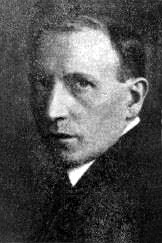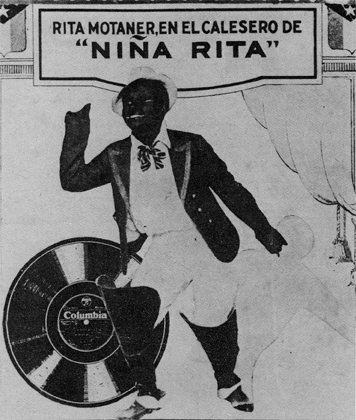|
Imre Földes (writer)
Imre Földes, born Imre Fleischmann, also known as Emmerich Feld (15 September 1881, Kaposvár - 30 April 1958, Budapest) was a Hungarian playwright and librettist. Biography Földes originally worked as a government official in Budapest. In his spare time, he wrote historical plays in verse. His first work to receive a performance, in 1904, was ''A Király Arája'' (The King's Bride), which was presented at the National Theatre. A long series of Romantic dramas followed; three of which won awards from the Hungarian Academy of Sciences. Much of his audience appeal was derived from his handling of social topics. In ''A Császár Katonái'' (The Emperor's Soldiers, 1908), he depicted the anti-Hungarian attitudes that were widespread in the Austro-Hungarian Army. In ''Hivatalnok Urak'' (The Clerks, 1909), he portrays the lives of government officials who behave like the public's masters, while unable to solve their own daily problems. Critics described his plays as "more or ... [...More Info...] [...Related Items...] OR: [Wikipedia] [Google] [Baidu] |
Imre Földes
Imre Földes (5 May 1881, Budapest - 1948?, Budapest) was a Hungarian graphic artist, painter, book designer, poster artist and engraver. Biography In 1897, at the age of sixteen, he began his studies at the commercial drawing school (''Kereskedelmi Szakközépiskola'') in Budapest. A year later, he transferred to the Royal Drawing School, where he studied with and Tivadar Zemplényi. He completed his studies in Berlin and Vienna. His interest in advertising and poster art manifested itself from the very beginning and he established himself as a commercial artist. In 1910, he exhibited his poster designs at the Hall of Art. The critical response was positive. That same year, and again in 1917, he participated in competitions for postage stamp designs; depicting Saint Stephen and Emperor Charles I with his wife, Empress Zita. Several of his designs were used on stamps issued in 1918. Shortly after, he founded a lithography workshop, where he created movie posters in col ... [...More Info...] [...Related Items...] OR: [Wikipedia] [Google] [Baidu] |
Viktoria Und Ihr Husar
''Viktoria und ihr Husar'' (''Victoria and Her Hussar'' is an operetta in three acts and a prelude by Paul Abraham with a libretto by Alfred Grünwald and Fritz Löhner-Beda, based on a work by the Hungarian playwright Imre Földes. It premiered under the baton of the composer on 21 February 1930 in Budapest. The German premiere was on 7 July 1930 in Leipzig, and it was then given on 23 December 1930 at the Theater an der Wien, Vienna. An adaptation into English by Harry Graham was performed at the Palace Theatre, London, on 17 September 1931. (Leipzig and London premieres; also: detailed plot, cast of the London premiere, musical numbers Roles Synopsis Time and place The operetta takes place after the end of the first world war in a Russian prison camp in Siberia, as well as in the cities Tokyo (Japan), St. Petersburg (Russia) and the Hungarian village Dorozsma near Szeged. Prelude Stefan Koltay, Cavalry Master of the Husars, and his batman Jancsi have become prisoner ... [...More Info...] [...Related Items...] OR: [Wikipedia] [Google] [Baidu] |
People From Kaposvár
The term "the people" refers to the public or common mass of people of a polity. As such it is a concept of human rights law, international law as well as constitutional law, particularly used for claims of popular sovereignty. In contrast, a people is any plurality of persons considered as a whole. Used in politics and law, the term "a people" refers to the collective or community of an ethnic group or nation. Concepts Legal Chapter One, Article One of the Charter of the United Nations states that "peoples" have the right to self-determination. Though the mere status as peoples and the right to self-determination, as for example in the case of Indigenous peoples (''peoples'', as in all groups of indigenous people, not merely all indigenous persons as in ''indigenous people''), does not automatically provide for independent sovereignty and therefore secession. Indeed, judge Ivor Jennings identified the inherent problems in the right of "peoples" to self-determination, as i ... [...More Info...] [...Related Items...] OR: [Wikipedia] [Google] [Baidu] |
Hungarian Librettists
Hungarian may refer to: * Hungary, a country in Central Europe * Kingdom of Hungary, state of Hungary, existing between 1000 and 1946 * Hungarians/Magyars, ethnic groups in Hungary * Hungarian algorithm, a polynomial time algorithm for solving the assignment problem * Hungarian language, a Uralic language spoken in Hungary and all neighbouring countries * Hungarian notation, a naming convention in computer programming * Hungarian cuisine Hungarian or Magyar cuisine (Hungarian language, Hungarian: ''Magyar konyha'') is the cuisine characteristic of the nation of Hungary, and its primary ethnic group, the Hungarians, Magyars. Hungarian cuisine has been described as being the P ..., the cuisine of Hungary and the Hungarians See also * * {{disambiguation Language and nationality disambiguation pages ... [...More Info...] [...Related Items...] OR: [Wikipedia] [Google] [Baidu] |
1958 Deaths
Events January * January 1 – The European Economic Community (EEC) comes into being. * January 3 – The West Indies Federation is formed. * January 4 ** Edmund Hillary's Commonwealth Trans-Antarctic Expedition completes the third overland journey to the South Pole, the first to use powered vehicles. ** Sputnik 1 (launched on October 4, 1957) falls towards Earth from its orbit and burns up. * January 13 – Battle of Edchera: The Moroccan Army of Liberation ambushes a Spanish patrol. * January 27 – A Soviet-American executive agreement on cultural, educational and scientific exchanges, also known as the "Lacy-Zarubin Agreement, Lacy–Zarubin Agreement", is signed in Washington, D.C. February * February 1 – Egypt and Syria unite to form the United Arab Republic. * February 2 – The ''Falcons'' aerobatic team of the Pakistan Air Force led by Wg Cdr Zafar Masud (air commodore), Mitty Masud set a World record loop, world record performing a 16 aircraft diamon ... [...More Info...] [...Related Items...] OR: [Wikipedia] [Google] [Baidu] |
1881 Births
Events January * January 1– 24 – Siege of Geok Tepe: Russian troops under General Mikhail Skobelev defeat the Turkomans. * January 13 – War of the Pacific – Battle of San Juan and Chorrillos: The Chilean army defeats Peruvian forces. * January 15 – War of the Pacific – Battle of Miraflores: The Chileans take Lima, capital of Peru, after defeating its second line of defense in Miraflores. * January 24 – William Edward Forster, chief secretary for Ireland, introduces his Coercion Bill, which temporarily suspends habeas corpus so that those people suspected of committing an offence can be detained without trial; it goes through a long debate before it is accepted February 2. Note that Coercion bills had been passed almost annually in the 19th century, with a total of 105 such bills passed from 1801 to 1921. * January 25 – Thomas Edison and Alexander Graham Bell form the Oriental Telephone Company. February * Febru ... [...More Info...] [...Related Items...] OR: [Wikipedia] [Google] [Baidu] |
IMDb
IMDb, historically known as the Internet Movie Database, is an online database of information related to films, television series, podcasts, home videos, video games, and streaming content online – including cast, production crew and biographies, plot summaries, trivia, ratings, and fan and critical reviews. IMDb began as a fan-operated movie database on the Usenet group "rec.arts.movies" in 1990, and moved to the Web in 1993. Since 1998, it has been owned and operated by IMDb.com, Inc., a subsidiary of Amazon. The site's message boards were disabled in February 2017. , IMDb was the 51st most visited website on the Internet, as ranked by Semrush. the database contained some million titles (including television episodes), million person records, and 83 million registered users. Features User profile pages show a user's registration date and, optionally, their personal ratings of titles. Since 2015, "badges" can be added showing a count of contributions. These badges rang ... [...More Info...] [...Related Items...] OR: [Wikipedia] [Google] [Baidu] |
The Flower Of Hawaii
''The Flower of Hawaii'' (German:''Die Blume von Hawaii'') is an operetta in three acts by Paul Abraham with a libretto by Alfred Grünwald, Fritz Löhner-Beda, and Imre Földes. It premiered on 24 July 1931 at the Neues Theater in Leipzig. The work was inspired by the story of Liliuokalani. Roles *Laya, of ( |
Operettas
Operetta is a form of theatre and a genre of light opera. It includes spoken dialogue, songs and including dances. It is lighter than opera in terms of its music, orchestral size, and length of the work. Apart from its shorter length, the operetta is usually of a light and amusing character. The subject matter may portray "lovers' spats, mistaken identities, sudden reversals of fortune, and glittering parties". It sometimes also includes satirical commentaries. "Operetta" is the Italian diminutive of "opera" and was used originally to describe a shorter, perhaps less ambitious work than an opera. Operetta provides an alternative to operatic performances in an accessible form targeting a different audience. Operetta became a recognizable form in the mid-19th century in France, and its popularity led to the development of many national styles of operetta. Distinctive styles emerged across countries including Austria-Hungary, Germany, England, Spain, the Philippines, Mexico, Cuba ... [...More Info...] [...Related Items...] OR: [Wikipedia] [Google] [Baidu] |
Imre Foldes
Imre () is a Hungarian masculine first name, which is also in Estonian use, where the corresponding name day is 10 April. It has been suggested that it relates to the name Emeric, Emmerich or Heinrich. Its English equivalents are Emery and Henry. Bearers of the name include the following (who generally held Hungarian nationality, unless otherwise noted): * Imre Antal (1935–2008), pianist * Imre Bajor (1957–2014), actor * Imre Bebek (d. 1395), baron *Imre Bródy (1891–1944), physicist *Imre Bujdosó (b. 1959), Olympic fencer *Imre Csáky (cardinal) (1672–1732), Roman Catholic cardinal * Imre Csermelyi (b. 1988), football player *Imre Cseszneky (1804–1874), agriculturist and patriot *Imre Csiszár (b. 1938), mathematician * Imre Csösz (b. 1969), Olympic judoka * Imre Czobor (1520–1581), Noble and statesman *Imre Czomba (b. 1972), Composer and musician *Imre Deme (b. 1983), football player *Imre Erdődy (1889–1973), Olympic gymnast * Imre Farkas (1879–1976), mus ... [...More Info...] [...Related Items...] OR: [Wikipedia] [Google] [Baidu] |
Edmond Rostand
Edmond Eugène Alexis Rostand (, , ; 1 April 1868 – 2 December 1918) was a French poet and dramatist. He is associated with neo-romanticism and is known best for his 1897 play ''Cyrano de Bergerac''. Rostand's romantic plays contrasted with the naturalistic theatre popular during the late nineteenth century. Another of Rostand's works, ''Les Romanesques'' (1894), was adapted to the 1960 musical comedy ''The Fantasticks''. Early life Rostand was born in Marseille, France, into a wealthy and cultured Provençal family. His father was an economist, a poet who translated and edited the works of Catullus, and a member of the Marseille Academy and the Institut de France. Rostand studied literature, history, and philosophy at the Collège Stanislas in Paris, France. Career When Rostand was twenty years old, his first play, a one-act comedy, ''Le Gant rouge'', was performed at the Cluny Theatre, 24 August 1888, but it was almost unnoticed. [...More Info...] [...Related Items...] OR: [Wikipedia] [Google] [Baidu] |




